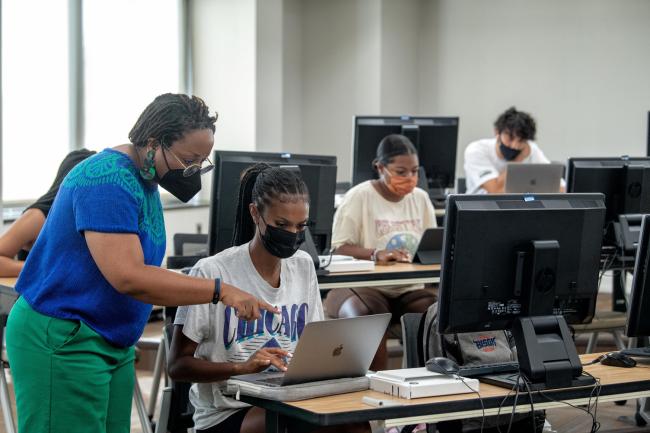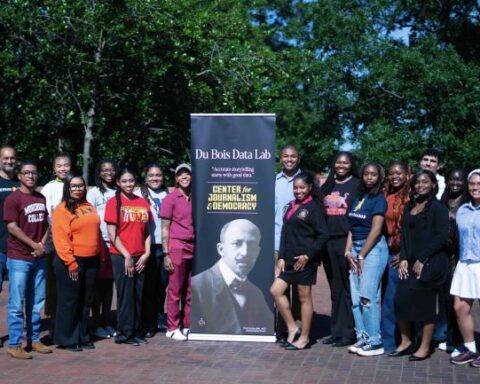By Brooke Brinson
The Henry Luce Foundation has awarded Howard University a $100,000 grant to support a collaboration with the University of California Santa Barbara, Johns Hopkins University, and the University of Minnesota.
Proposed by Howard University PI Mona Oraby, PhD, this collaboration will result in a digital expansion of “A Universe of Terms.” The project was first published in AY 2019-2020 on The Immanent Frame, an award-winning site hosted by the Religion and the Public Sphere Program of the Social Science Research Council (SSRC). The first edition of A Universe of Terms aimed to provide non-specialists with multiple entry points into the study of religion by inviting scholars across the social sciences and humanities to respond to key terms such as “modernity,” “belief,” and “human.” An illustrated book based on that multimedia project, entitled A Universe of Terms: Religion in Visual Metaphor, was published by Indiana University Press in November 2022. The book provides the conceptual framework for the next digital phase supported by the Luce Foundation.
“The Luce-funded expansion acknowledges that scholars have an opportunity and responsibility today to address climate change and social inequality, and to imagine this work as central to the mission of higher education,” says Oraby. She has convened an interdisciplinary research team comprised of three co-PIs to address these interlocking topics: Katharine Gerbner, PhD, Associate Professor of History and Samuel Russell Chair in the Humanities at the University of Minnesota; Naveeda Khan, PhD, Associate Professor of Anthropology at Johns Hopkins University; and Lisa Sideris, PhD, Professor of Environmental Studies at the University of California Santa Barbara.
The purpose of the “A Universe of Terms” project is to visually explore through a lexicographic framework two interlinked issues of contemporary importance: the entanglement and interdependence of human and nonhuman life, as well as the precarious status of religious and racial groups across the Global North and the Global South. Rather than add terms to the existing site that already predominate religious studies, the project team and SSRC staff will build a custom standalone site that spotlights epistemologies specific to understudied local and transnational communities. Each project team member will collect and publish data on a specific term that derives from their respective research on Bangladesh, Egypt, the United States, and the West Indies. The new site is planned to be harmonious with the first digital iteration.
The expansion of “A Universe of Terms” will also include visual media to enhance accessibility, provide research support for established scholars and graduate students, and facilitate collaboration with community partners whose histories are featured in the project. “A Universe of Terms” thus expands the definition of scholarship and scholarly audience, extends the enterprise of digital scholarship to new communities of users, builds collaborative networks in and beyond academia, enhances the visibility of humanistic scholarship, and diversifies the digital record.
By blending scholarship and activism, “A Universe of Terms” mobilizes knowledge for the common good. This objective is central to Howard University, which empowers students and faculty to drive change in their world. “A Universe of Terms” further increases the depth and diversity of research supported by Howard University, a priority outlined in the Howard Forward Strategic Plan (2019-2024).





